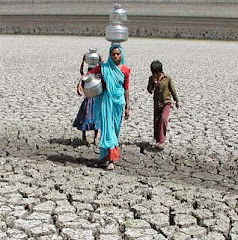Jain Irrigation, India's leading manufacturer of water distribution devices and irrigation systems, has charted plans to launch a water footprint initiative aimed at conserving the resource. It has roped in World Bank's private lending arm, International Finance Corporation (IFC) for the endeavour.
The initiative will allow Jain Irrigation to measure its environmental and sustainability benefits and help identify ways for it to reduce water consumption. This is one of the first such moves undertaken in the Indian corporate sector to understand the concept of water footprint.
Water footprinting involves evaluating direct and indirect water usage in business activities, including those of suppliers. It also entails understanding linkages to local water sources and scarcity, and assessing impacts on community water resources and the environment with the goal of adopting conservation measures.
The effort couldn't have come in at a better time. Water supply in the country is waning and pollution is eating into it further. In a country, where agriculture remains the mainstay of rural income, though as a percentage of gross domestic product (GDP) it remains less than one-fourth of a contributor, water availability plays an important role.
The project will demonstrate effective management of natural resources, particularly the benefits to farmers of water conservation. Jain Irrigation is a diversified player in the Indian water infrastructure industry and commands a sizeable presence in agri-business too.
The company claims to be the world’s second-largest drip irrigation systems company after Israel’s Terafin. Its micro-irrigation products are well entrenched in the Indian agriculture industry.
The water footprinting exercise is also expected to bring benefit to several other Indian companies. The project will also aim to develop tools that can be replicated by other private sector companies in ascertaining their direct and their suppliers' water exposure, minimizing water risks, improving water efficiencies, and limiting their water-related social and environmental impacts.
It would be a worthwhile effort for Indian companies, particularly in the water-intensive industries, to tune in and stay abreast with the initiative, and its results. In the near future, it would be prudent for these companies, as also others in India, to undertake water footprinting to not only bring down the usage of the scarce resources, but also understand the future business risk.
Subscribe to:
Post Comments (Atom)

.jpg)



No comments:
Post a Comment